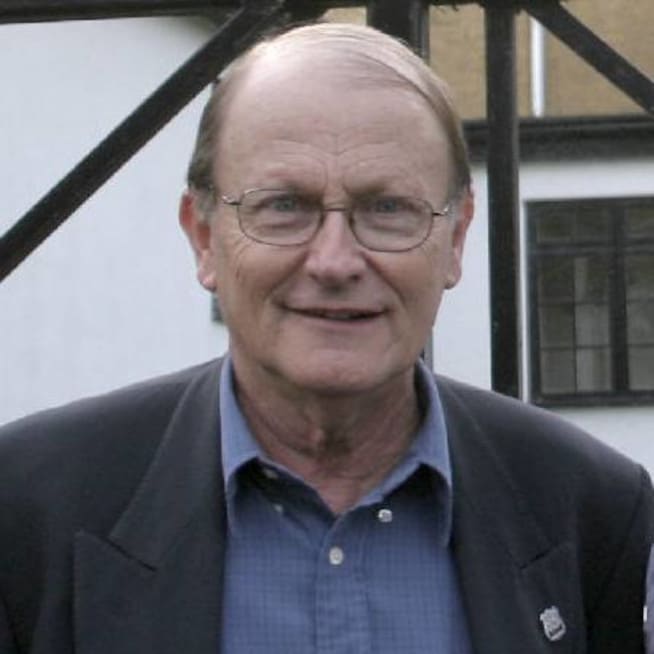What Are We to Do? A Question of Self-defense
by Gary Corwin
When Christians are targeted for destruction for righteousness’ sake by an unjust state apparatus (e.g., Rome in the second century, or the Kachin of Myanmar/Burma in the twenty-first century), the option of self-defense may or may not be chosen, but it ought to be considered.
The events of recent years in Nigeria have left the Church of that land with a quandary—one perhaps new to them, but not new in the history of Christ’s Church. When Christians are targeted for destruction for righteousness’ sake by an unjust state apparatus (e.g., Rome in the second century, or the Kachin of Myanmar/Burma in the twenty-first century), the option of self-defense may or may not be chosen, but it ought to be considered.
The question of self-defense also looms when tyrants usurp power over democratic societies in contravention of their higher constitutional authority (e.g., British citizens of the American colonies during the eighteenth-century reign of George III, or Nigeria today, where large segments of the government support and assist the slaughter of innocent Christian civilians by Islamic jihadis known as Boko Haran.
I recently was part of a conference held in Addis Ababa, Ethiopia, on SIM history in Africa 1893-2000. It consisted of mission and church scholars, together with academic scholars from outside the mission community. This was an unusual undertaking for an evangelical faith mission, but a very enlightening one nonetheless. One of the consistent, if somewhat difficult to extract, answers coming from Nigerian, Ethiopian, and other African church leaders to the question, “What do you wish SIM had done differently?” was “We wish there had been (and we still desire) more education on how to build healthy nations.”
Sitting with one of the Nigerian scholars/church leaders over lunch, I heard a heartfelt expression of concern and frustration over the ongoing attacks and loss of innocent life as a result of attacks by Boko Haran militants. Churches and schools have been bombed and whole villages of Christians have been massacred. As I listened to his impassioned desire for godly answers to the problem, I couldn’t help thinking about the American Revolution and the divisions that existed within the Christian population over the appropriate response to the King’s abuse of power.
Church historian Mark Noll has pointed out that there were four responses that came from believers at that time. There were (1) those who sincerely felt on the basis of Romans 13 that they should go along with whatever the King did; (2) those who thought renewed appeal was the only appropriate avenue of response; (3) those who took up arms to overthrow an unjust tyranny unfaithful to its legal obligations; and (4) pacifists who simply felt that participation in any kind of war was never an appropriate response (2006).
In Nigeria today, there are growing divisions within the Christian community along similar lines, although a prayer response remains a vibrant common denominator among most. Some, however, particularly younger people, have expressed their frustration this way: “We have no more cheeks to turn.” What counsel/action should the expatriate mission community offer in response to their appeal for help?
Unusual as it may seem, the question of worthy counsel may actually be more important at this time than any action that could be taken. While it might change over time, right now there isn’t much else that expatriates can do to help.
What counsel should the expatriate mission community offer? This is not easy to answer. Believers in many parts of the world, including North America, have not been very good at answering such questions in their own context. Part of the reason for that in the North American context, I believe, is that for most of the twentieth century believers had a low view of engaging significantly in politics.
This was attributable in part to its perceived unseemly characteristics, as well as to a misguided view held by many that such involvement is fruitless in light of the Lord’s soon return and the more urgent need to evangelize the lost. Even today, when this sort of rigid dichotomistic view is much less common, the involvement that has taken place has often been quite naive.
I cannot help wondering if the answer doesn’t lie in encouraging the development of local but well-disciplined Christian self-defense forces in each vulnerable community. As defensive forces only (not given to attacking innocent civilians in response to innocent civilians killed or injured on your side), such forces could be both effective and a witness to a higher ethic that comes with being a follower of the Lord Jesus Christ. Other than those from an historic peace church tradition, such as the Mennonites, the vast majority of Christians in the West would not hesitate to pursue such a course if their own government was not fulfilling its God-given role to protect the innocent and to punish evildoers.
The question remains: Should we encourage our brethren, such as believers in Nigeria, to consider such a course? While turning the cheek is an appropriate and godly personal response to unjust behavior toward oneself, is it the only appropriate community response to genocide?
Reference
Noll, Mark A. 2006. Christians in the American Revolution. Vancouver: Regent College Publishing.
….
Gary Corwin is associate editor of EMQ and staff missiologist with the international office of SIM.
EMQ, Vol. 50, No. 1, pp. 10-11. Copyright © 2014 Billy Graham Center. All rights reserved. Not to be reproduced or copied in any form without written permission from EMIS.



